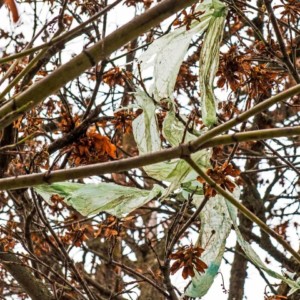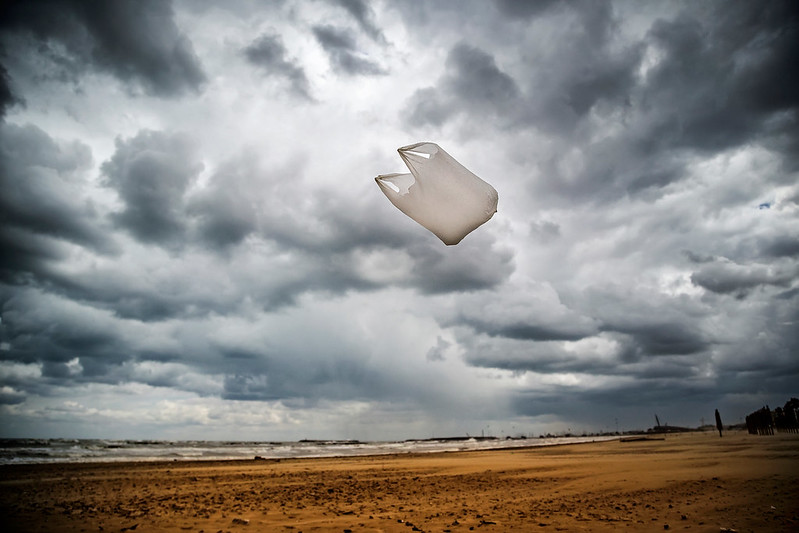
By Ariana Mu?oz. 8th grader at Wy’east Middle School in Odell, OR. Winner of the EnviroGorge Kids Writing Contest.
Throughout the valley, our population of 12,000 residents uses an excessive amount of plastic bags. Plastic is responsible for many of the environmental issues affecting the world. Hood River is contributing to a problem instead of solving it.
To begin with, our community uses a tremendous amount of plastic bags. Our class this year found that: from our four major supermarkets in Hood River, we use about 15,000 bags a day. Based on last year’s research, 10 percent of Hood River’s garbage is plastic, and it mostly consists of plastic shopping bags.
There is a common delusion that plastic bags are recyclable. However, West Van Recycling Center in northeast Vancouver, Washington does not accept plastic bags, because they wrap around the shafts, which ends up delaying the procedure. For these reasons, plastic bags get thrown in the trash where they do not biodegrade; therefore, they will just sit around for many years.
Along with that, littering is against the law in many parts of the world. Since it is against the law, why is it okay to litter in the ocean? How does it make it any different from littering on land? One hundred thousand marine life animals, and approximately one million seabirds a year die from mistakenly consuming plastic. These animals decompose, and the plastic that was in their system will disengage–which will then be eaten by more animals. The plastic is breaking down into diminutive particles, which bewilder marine animals into assuming it is nourishment.
As a matter of fact, plastic bags are made up of phthalates: a chemical that makes plastic soft and flexible. Phthalates can migrate out of a human’s body, but can cause serious health effects. People sometimes suggest that we should just burn the plastic bags. When a bag is burned or melted it will discharge dioxins. Dioxins are very harmful to human health.
Next in importance, Hood River is crammed with tourists during summer. Tourists love to see communities working together to help the environment. Communities are trying their best to stop plastic bags from affecting environments. If tourists see the difference of our plastic bag ban movement, they can possibly do the same for their city/town. The more states that ban the bag, the less environments will be affected.
In addition, our community cares about kids and their hard work. My contemporaries participate in fundraisers and fun events, and they love seeing the rewards. Youth are trained to make working hard a habit. In summer of 2015, our community threw a special party for a three year old who had cancer. Countless people dressed up as Disney characters, multiple cakes were made, and a lot of money was raised. The kids learned that their hard work paid off. Hood River encourages citizens who act and take action. My generation works hard to influence what evolves around them. What we can’t proactively prevent now will affect us in the future. What will my generation’s future be like?
Even though people suppose that it is moderately straightforward to recycle a plastic bags, people still do not realize how much damage a single bag can do. All of the plastic bags used and produced everyday, could cover the United States ten times.
To sum it up, Hood River could be a positive example, if we decreased plastic bag usage. A plastic bag ban/fee would help Hood River make a sizeable impact. Thank you for your time reading this article and considering this issue.






